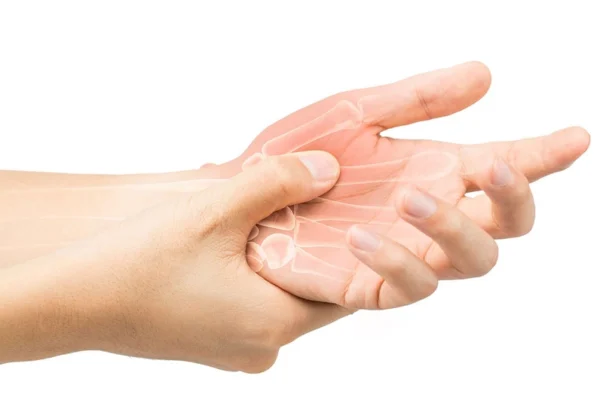CBD oil is used as a dietary supplement to improve many aspects of health. What are the effects and dosage of CBD oil? The article below will give you all the information you need.
The health benefits of CBD have been discovered through numerous scientific studies. The CBD is used both to treat numerous ailments and as an ingredient in various beauty products. However, CBD cannot be used indiscriminately, as it also carries undesirable risks. Let's find out more about the origin, benefits, dosage and warnings about the side effects of CBD!
What is CBD oil?
CBD or cannabidiol is a natural compound derived from the hemp plant. This plant is also known as marijuana, depending on its THC content. tetrahydrocannabinol. THC has a powerful effect on the nervous system, causing major changes in the mind as soon as it is used. CBD, on the other hand, does not affect the nervous system. This means that it does not alter the user's state of mind.

What are the effects of CBD oil?
Numerous scientific studies have been carried out on Cannabidiol oil. CBD causes an effect in the body that brings health benefits. Here are the effects of CBD analysed by science.
Treatment of epilepsy
In 2018, the US Food and Drug Administration approved the use of Epidiolex (a pure form of CBD) in the treatment of epilepsy. CBD prevents seizures in people with Lennox-Gastaut and Dravet epilepsy. The psychotropic side effects of CBD are also less than those of other anti-epileptic drugs.
Pain relief and anti-inflammatory
CBD inhibits the release of inflammatory compounds in the body, helping to reduce inflammation, swelling and pain. It also increases anandamide - a receptor that regulates and inhibits pain. CBD also provides a relaxing sensation to relieve pain thanks to neurotransmitters such as dopamine and serotonin.

Prevention and treatment of Alzheimer's disease
Alzheimer's is a neurodegenerative disease that causes memory decline and cognitive and behavioural problems. According to a 2014 scientific study, Cannabidiol oil can help Alzheimer's patients maintain their ability to remember familiar faces. A 2019 scientific study also showed that CBD can prevent and slow the progression of Alzheimer's disease.
Anxiety reduction, support for the treatment of depression
CBD increases the response of chemical receptors to serotonin in the brain. Numerous scientific studies have found that CBD reduces anxiety and has a positive impact on disorders such as obsessive-compulsive disorder, anxiety disorders, panic attacks and depression. Compared to antidepressants, CBD works more quickly and has fewer side effects.
Help to stop smoking
According to one study, people who use CBD inhalers when they smoke feel less like smoking. The relaxing effect of Cannabidiol oil helps block cravings when quitting smoking, reducing withdrawal symptoms. This shows that CBD can help you stop smoking.

Elimination of acne and skin disorders
Cannabidiol is found in many beauty products and topical medicines. CBD's anti-inflammatory properties help to reduce swelling and inflammation of acne-prone skin. The oil of Cannabidiol treats acne, particularly cystic and nodular acne. It also reduces sebum production and prevents inflammation to prevent acne. What's more CBD improves psoriasis and certain skin conditions.
Stepping up the fight against cancer
Cannabidiol can prevent the spread of cancer cells, particularly breast, colon, lung and prostate cancer. This is the conclusion of scientific research conducted in laboratories and on mice. However, combining CBD with cancer treatments in humans still requires further research.
CBD's medical potential also extends to type 1 diabetes, the treatment of autism, lupus, Crohn's disease, mad cow disease, etc. Scientists are continuing to conduct research into the wider application of CBD. CBD in medicine.

Dosage and side effects of CBD
CBD doses vary according to body weight, the concentration of the product and the purpose of the treatment. Here are the doses recommended by medical experts:
- For the treatment of chronic pain: Take 2.5 to 20 mg of CBD daily for 25 days.
- For the treatment of epilepsy: Take 200 to 300 mg of CBD daily for a maximum of 4.5 months.
- For problems associated with Huntington's disease: Take at a dose of 10 mg per kilogram of body weight for six weeks.
- For the treatment of sleep disorders: Take 40 to 160 mg of CBD per day.
- For the treatment of psychotic disorders: Take 40 mg to 1,280 mg of CBD per day for a maximum of four weeks.
- For the treatment of hypertension: Take a single dose of 20 to 40 mg of CBD.

Le cannabidiol is rarely associated with side effects, but you should always be cautious about unwanted risks such as
- Fatigue, drowsiness;
- Diarrhoea, loss of appetite;
- Irritability;
- Drug interaction;
- Liver damage;
- Reduced fertility in men.
Read our article: What is HHCP0?
CBD is particularly dangerous for pregnant and breast-feeding women. Cannabidiol oil can be used in a variety of ways: mixed with food and drink, taken in capsules, massaged into the skin, sprayed under the tongue, etc.
According to the WHO, an adult can take up to 1,500 mg of CBD a day before experiencing overdose reactions. You can buy CBD in medical establishments, pharmacies or shops, such as MariSwiss. Before using CBD oil, you should consult a doctor for advice on dosage.

